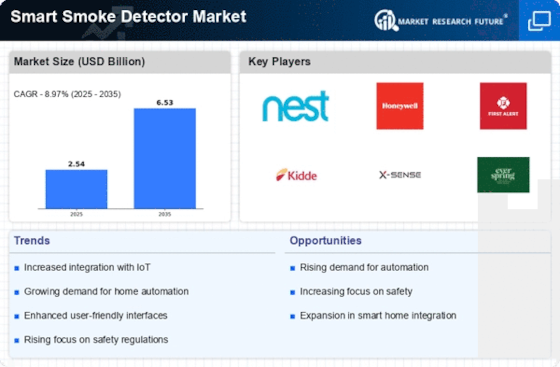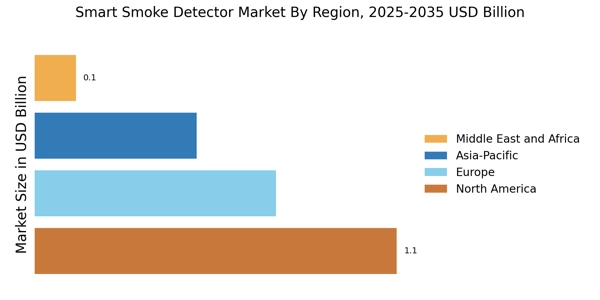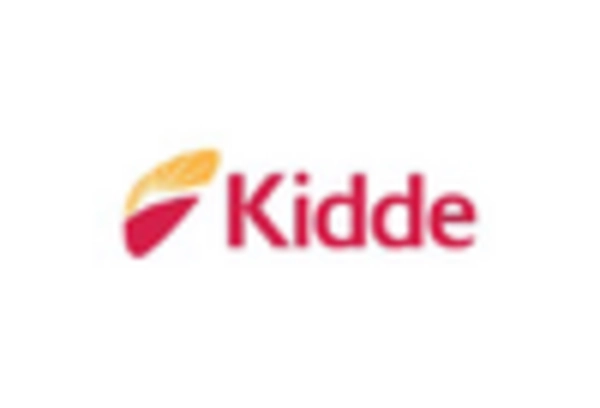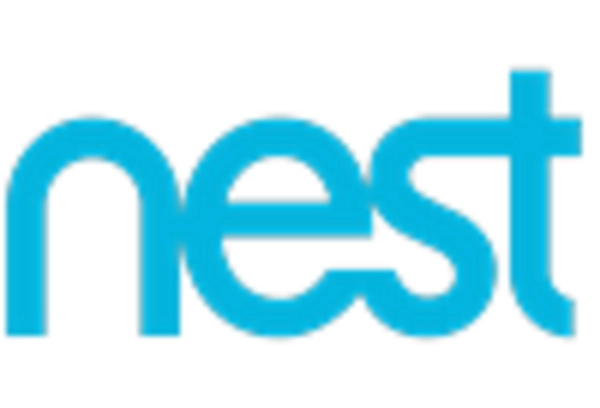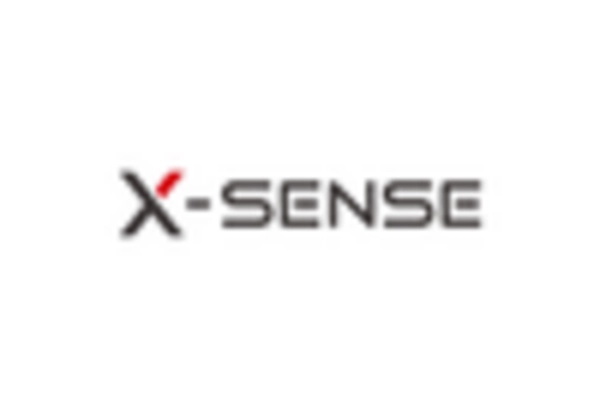Rising Awareness of Fire Safety
There is a growing awareness of fire safety among consumers, which significantly impacts the Smart Smoke Detector Market. Educational campaigns and government initiatives aimed at promoting fire safety have led to increased consumer knowledge regarding the importance of smoke detectors. Data indicates that regions with active fire safety campaigns have seen a 25% increase in smoke detector installations. This heightened awareness is driving demand for smart smoke detectors, as consumers are more inclined to invest in advanced safety solutions that offer real-time alerts and connectivity features. Consequently, the Smart Smoke Detector Market is poised for growth as more individuals recognize the critical role these devices play in protecting lives and property.
Regulatory Compliance and Standards
Regulatory compliance and evolving safety standards are significant factors influencing the Smart Smoke Detector Market. Governments and safety organizations are continuously updating regulations to ensure that smoke detectors meet stringent safety requirements. For instance, new standards may mandate the inclusion of smart features in smoke detectors, such as connectivity and remote monitoring capabilities. This regulatory landscape encourages manufacturers to innovate and improve their products, thereby driving market growth. Data shows that regions with strict compliance requirements have seen a 20% increase in the adoption of smart smoke detectors. As regulations become more rigorous, the Smart Smoke Detector Market is likely to expand, with manufacturers focusing on meeting these standards to remain competitive.
Integration with Smart Home Ecosystems
The integration of smart smoke detectors with existing smart home ecosystems is a key driver in the Smart Smoke Detector Market. As more households adopt smart home technologies, the demand for interconnected devices that enhance home automation is increasing. Smart smoke detectors that can communicate with other smart devices, such as security systems and smart thermostats, provide users with a comprehensive safety solution. Market data suggests that homes equipped with smart home systems are 40% more likely to have smart smoke detectors installed. This trend indicates a shift towards holistic home safety solutions, further propelling the growth of the Smart Smoke Detector Market as consumers seek seamless integration and enhanced functionality.
Consumer Preference for Enhanced Features
Consumer preference for enhanced features in smoke detectors is a notable driver in the Smart Smoke Detector Market. Modern consumers are increasingly seeking devices that offer more than basic smoke detection; they desire features such as smartphone notifications, voice alerts, and integration with home automation systems. Market Research Future indicates that approximately 60% of consumers are willing to pay a premium for smart smoke detectors that provide these advanced functionalities. This shift in consumer expectations is prompting manufacturers to innovate and differentiate their products, leading to a more competitive market landscape. As preferences evolve, the Smart Smoke Detector Market is expected to grow, driven by the demand for devices that offer convenience, safety, and peace of mind.
Technological Advancements in Detection Technology
The Smart Smoke Detector Market is experiencing rapid advancements in detection technology, which enhances the accuracy and reliability of smoke detection. Innovations such as photoelectric sensors and dual-sensor systems are becoming increasingly prevalent, allowing for quicker response times and reduced false alarms. According to recent data, the integration of advanced algorithms in smoke detectors has led to a 30% improvement in detection rates. This technological evolution not only increases consumer confidence but also drives market growth as homeowners seek more reliable safety solutions. As these technologies continue to evolve, the Smart Smoke Detector Market is likely to see a surge in demand, particularly among tech-savvy consumers who prioritize safety and efficiency in their homes.

